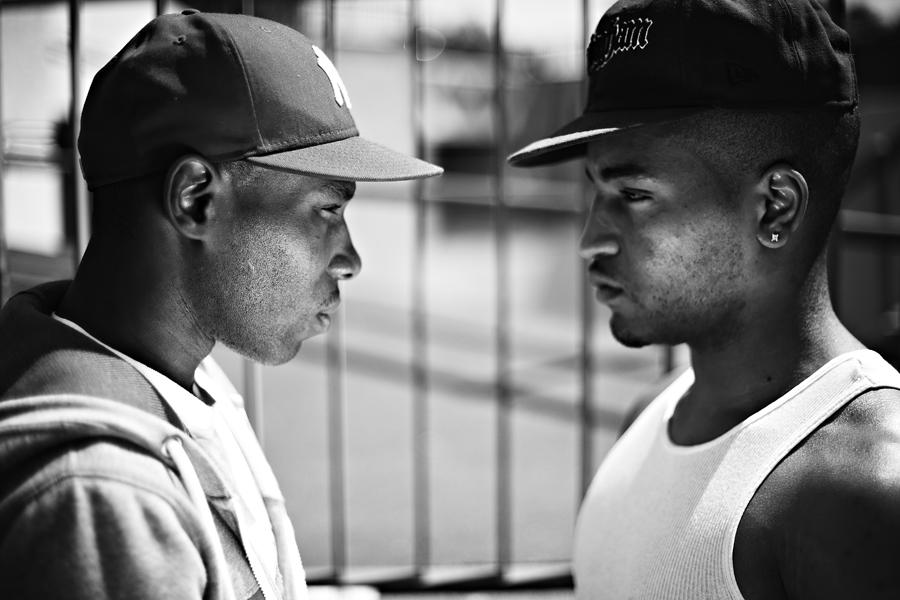''A riveting portrait of the complex, contentious reality of the streets, and the courage it takes to make a difference, it could well be this year's most important British film.'' - Time Out
Having directed an earlier movie set in Birmingham's black community, Penny Woolcock was called in bt local gang leaders to document an attempt to create a truce. It starts with representatives of the Burgers and the Johnsons meeting in a neutral hotel room, where everyone is suspecting it might be an ambush. Both gangs belong to areas with high crime and unemployment rates, whose postcodes are separated by a mile. Subsequent discussions are conducted mostly on the streets, though one conversation between gangsters, a local white parliamentary candidate and Jonathan Powell, former Downing Street adviser and participant in the Ulster peace process.
''England is a divided country, divided even within communities who have almost everything in common. Before I saw One Mile Away I had heard about postcode warfare, where gangs who live in different postcodes are sworn enemies. But One Mile Away brought that reality alive in Birmingham, where a dual carriageway divides the Burger Bar Boys and the Johnson Crew. The documentary follows the efforts of one member of each gang as they try to forge a truce. Their efforts are mediated informally by the film -maker Penny Woolcock, who for many months is the only one who can cross the divide. The film depicts a world where the teenagers have guns and knives and use them and where the 'elders' are in their twenties and many have spent years in prison. Its a brilliant film. Its partly about leadership- the two truce makers are not the chiefs of their gangs, but they are very brave in their efforts to influence, and incredibly persistent. For months, Shabba cannot get his side to listen at all, and his motivation is distrusted. Its the persistence that in the end pays off. The film is also notable for the absence of women. Its a man's world where women play no role in gang politics, and appear to have little influence. Its also a world of black people and teenagers, where the only white figures are the police.''
Funding:
The film was funded by Channel 4, Barrow Cadbury Trust and Creative England, with development grants from PUMA, Fallon and Influence Film Fund. Also distribution and the social impact work of the film is funded by Bertha Foundation as well as donations from the public.
Promotion:
Promotion was largely done through social networking sites such as Twitter, for various reasons. This includes the fact that they only had a small budget so capabilities of promotion were limited. Also, most teenagers are on one or more social networking sites so it is an easy, quick and cheap way to spread the word as word of mouth is powerful. This was successful as it reached their target audience at the same time. This contrasts with a large mainstream film such as Skyfall which had a huge budget so was able to advertise world wide, attracting larger audiences, thus making it more well known.



No comments:
Post a Comment